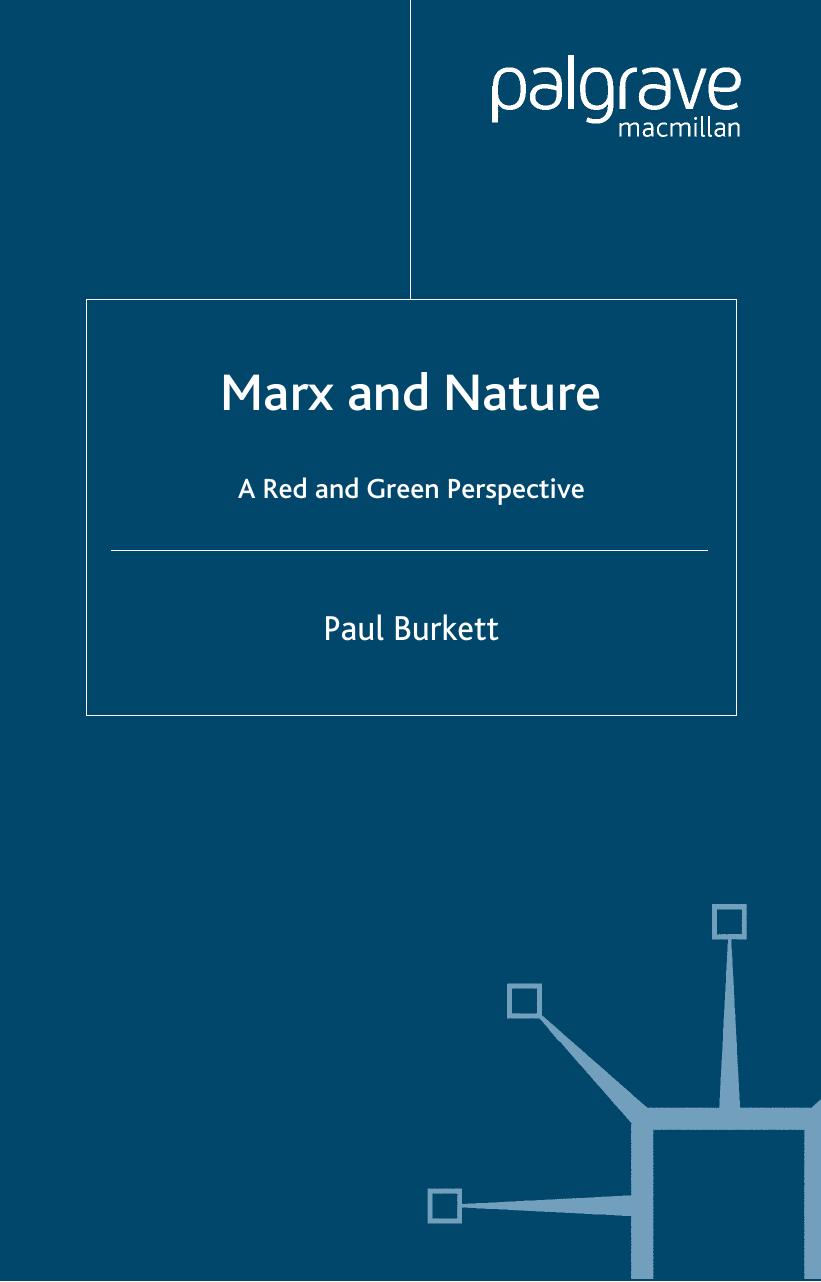Marx and Nature: A Red and Green Perspective by Paul Burkett

Author:Paul Burkett
Format: epub, pdf
Tags: Nature, Social Sciences
ISBN: 978-1-60846-530-9
Publisher: Perseus Books, LLC
Published: 2015-01-08T16:00:00+00:00
Capitalism, Science, and Nature
Historically, “capital does not create science”; nonetheless, “it exploits it, appropriates it to the production process” (Marx, 1994, 33). 5 Indeed, “it is the capitalist mode of production which first puts the natural sciences to the service of the direct production process” on a systematic and routine basis (32). Chapters 5 and 6 touched upon the role of capital’s appropriation of science in its exploitative development and socialization of production. It is only by “utilising science itself just as much as all the physical and mental qualities” that “production founded on capital creates universal industriousness . . . a system of general exploitation of the natural and human qualities” (1973, 409). Whether freely appropriated or not, capital’s productive application of science helps explain how it “tear[s] down all the barriers which hem in the development of the forces of production, the expansion of needs, the all-sided development of production, and the exploitation and exchange of natural and mental forces” (410). It thus also helps explain how capital opens up possibilities for less restricted forms of human development, as it constantly “drives beyond national barriers and prejudices as much as beyond nature worship, as well as all traditional, confined, complacent, encrusted satisfactions of present needs, and reproductions of old ways of life” (410).
The fact that science is systematically “enlisted by capital” does not exhaust capitalism’s progressivity in this area (1994, 38). Marx also argues that capitalism positively encourages “the development . . . of the natural sciences to their highest point” (1973, 409). The fundamental basis of this positive evaluation is that “knowledge . . . becomes independent of labour” precisely insofar as it “enters the service of capital”; in other words, “this process belongs in general to the category of the attainment of an independent position by the conditions of production vis-à-vis labour. This separation and autonomisation, which is at first of advantage to capital alone, is at the same time a condition for the development of the powers of science and knowledge” (1994, 57).
Capitalism thus encourages the development and application of scientific knowledge in the same way it accelerates the development of all productive forces: by socially separating this condition of production from the control of the direct producers and converting it into a vehicle of competitive monetary accumulation. With capitalism, there is
a separation of science, as science applied to production, from direct labour, whereas at earlier stages of production the restricted measure of knowledge and experience is directly linked with labour itself, does not develop as an autonomous power separated from labour, and therefore in general never gets beyond a collection of procedures carried on traditionally and only expanding very slowly and little by little. (1994, 33)
Capitalism’s separation of science from direct labor thus involves a “concentration” and “development into a science of the knowledge, observations and craft secrets obtained by experience and handed down traditionally, for the purpose of analysing the production process to allow the application of the natural sciences to the material production process” (34).
Download
Marx and Nature: A Red and Green Perspective by Paul Burkett.pdf
This site does not store any files on its server. We only index and link to content provided by other sites. Please contact the content providers to delete copyright contents if any and email us, we'll remove relevant links or contents immediately.
The Lonely City by Olivia Laing(4799)
Animal Frequency by Melissa Alvarez(4463)
All Creatures Great and Small by James Herriot(4311)
Walking by Henry David Thoreau(3953)
Exit West by Mohsin Hamid(3824)
Origin Story: A Big History of Everything by David Christian(3687)
COSMOS by Carl Sagan(3618)
How to Read Water: Clues and Patterns from Puddles to the Sea (Natural Navigation) by Tristan Gooley(3466)
Hedgerow by John Wright(3354)
How to Read Nature by Tristan Gooley(3335)
The Inner Life of Animals by Peter Wohlleben(3311)
How to Do Nothing by Jenny Odell(3294)
Project Animal Farm: An Accidental Journey into the Secret World of Farming and the Truth About Our Food by Sonia Faruqi(3216)
Origin Story by David Christian(3195)
Water by Ian Miller(3179)
A Forest Journey by John Perlin(3069)
The Plant Messiah by Carlos Magdalena(2927)
A Wilder Time by William E. Glassley(2859)
Forests: A Very Short Introduction by Jaboury Ghazoul(2836)
